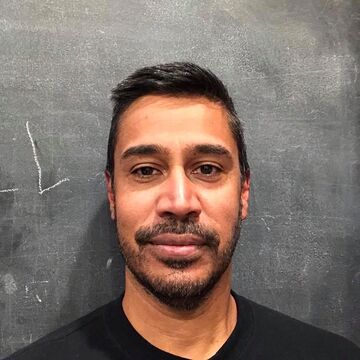

Hilesh Patel
Lecturer
Contact
Bio
Hilesh Patel is a poet, consultant, educator, artist and member of the art group The Chicago ACT Collective. His writing investigates immigration, healing, memory and the idea of living memorials. He was born in Dar es Salaam, Tanzania and has called Chicago home for most of his life.
His experience, skills, and values are rooted in community growth, relationship-building, financial management, staff supervision and policy advocacy cultivated from 20 years working in the non-profit space. His professional path has been in roles as a program manager, consultant, educator, artist, Deputy and Acting Director of a community-based non-profit, Leadership Investment Program Officer and most recently Executive Director of Invisible Institute, a data, investigative journalism, and human rights organization. Across all his work, Hilesh integrates racial equity, civic engagement, and leadership development into the core mission of his professional practices. For the past four years he has been consulting with mostly small non-profits and collectives to strategically plan and build human resource functions. He is also a member of The Chicago ACT Collective, building political artistic collaboration and dialogue across multiple communities. The Collective enacts self and community care through art-making, generating work that both reflects and responds to current local needs identified by those most directly impacted.